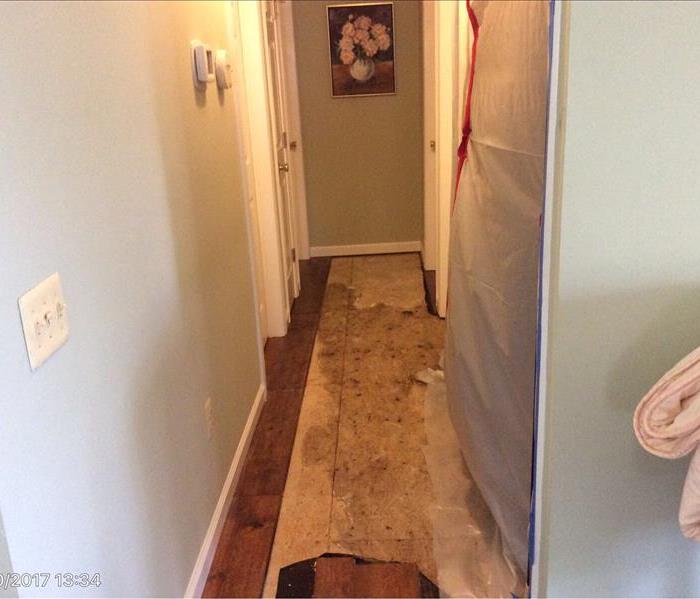Got Water Damage? Four Things You Need to Know.
7/19/2017 (Permalink)
Got Water Damage? Four Things You Need to Know.
After the floodgates open, things can unravel quickly. Here’s how to begin the recovery process.
Your water heater exploded, a pipe burst, an epic rainstorm flooded your basement: No matter how the deluge began, you’ve now got a soggy mess on your hands. And unless you act quickly, the damage will only get worse.
You’re probably feeling overwhelmed, stressed out, and frightened. How will you ever clean up the water damage? Will your insurance cover the cost? Did irreplaceable stuff—like old photos and letters—get ruined?
While you’re swimming in questions, it’s important to keep the momentum going. Here are four ways to begin the recovery process:
- Contact your insurance carrier immediately.
As soon as you discover water damage, let your insurance carrier know so the claims process can begin. Your agent will also give you tips for protecting your property from additional damage and may refer you to a water-damage restoration company (you are not obligated to use the specialist they recommend).
Note: Insurance companies differentiate between water damage and flood damage, so be sure to specify which applies to your situation. Also, not all water damage is covered by insurance—review your policy carefully.
- Tick tock. Time is of the essence when you have water damage.
Water is aggressive and cruel. Once it seeps in to carpets, flooring, walls, furniture, paper, and everything else in its wake, it will continue to destroy. Drywall will droop and disintegrate. Wood will swell, buckle, warp, and rot. Electrical equipment may short out, causing shock and fire hazards. Mold will flourish (see point #3).
For anything other than a minor spill, it’s best you get a professional assessment of your situation to determine the extent of damage. Professional water-damage specialists can then begin the restoration process and halt additional damage.
- You’ve got less than 48 hours to dry out before mold takes over.
Mold spores lurk everywhere, but they’re opportunistic. Give them a nice wet environment—like a soaked carpet or damp drywall—and they’ll multiply like mad. You have 24 to 48 hours to dry your space before the fungus invasion.
Mold remediation is a dirty deed and is best left to specialists who have the right equipment and cleaning supplies to get the job done swiftly.
- Water may be contaminated.
An overflowing dishwasher or burst water heater releases clean H2O, so there’s little immediate risk of harm. But, again, time is not on your side. “Clean” water that’s been sitting around can foster bacterial growth or pick up icky stuff from dirty carpets and ground soil, sullying the waters within hours.
Even more serious: Sewage backups, toilet overflow, storm-drain water, and other polluted waters that enter your home can be dangerous to your health. Attempting to clean these messes up yourself is a bad idea. Get professional help from certified water-damage remediation experts, like SERVPRO of Toms River.
If you’ve experienced water damage, contact us now. We’ll help you get back to “Like it never even happened.”




 24/7 Emergency Service
24/7 Emergency Service
